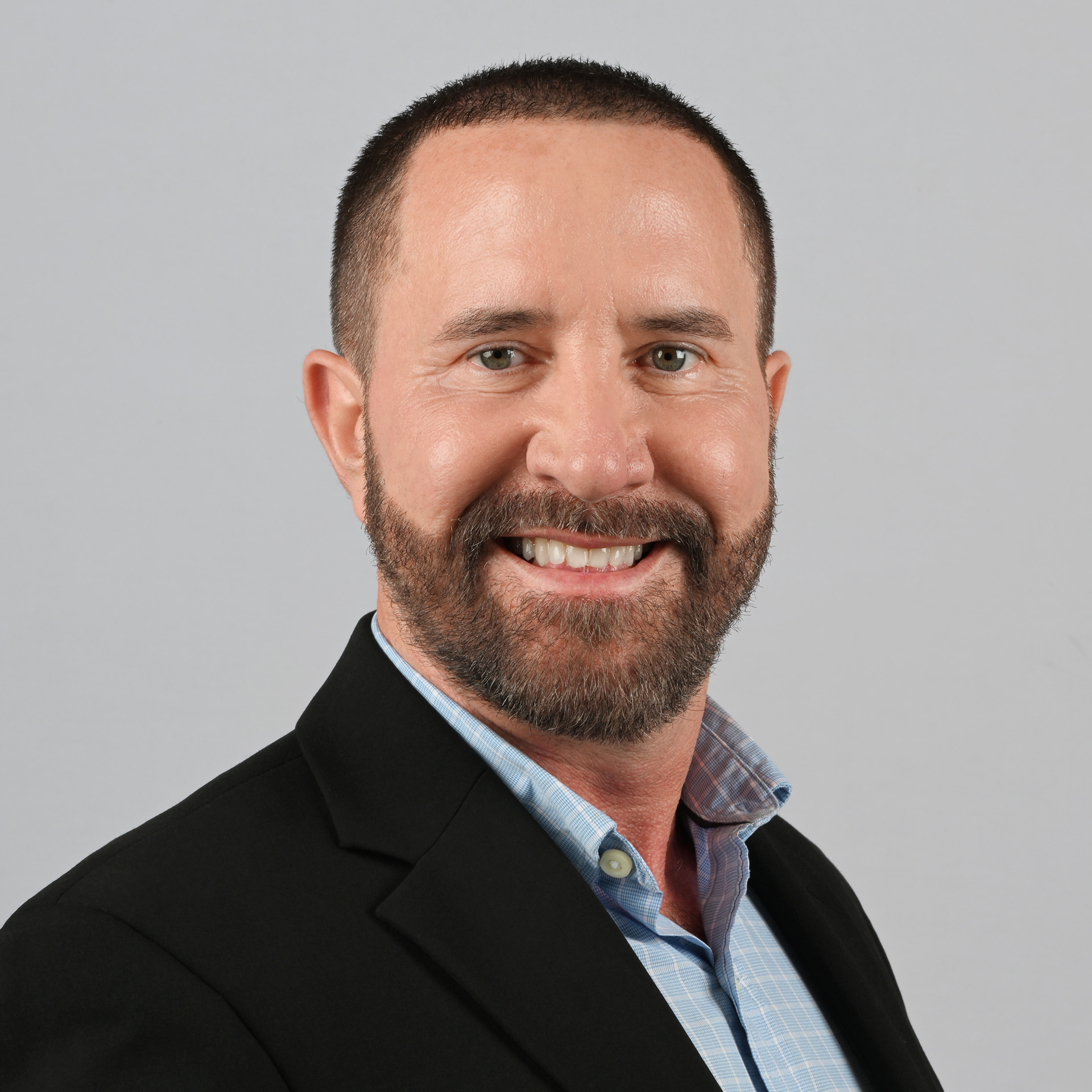Dr. Carmen L. Cadilla

I am a Hispanic American faculty member at the UPR School of Medicine with a strong career in Molecular Biology and Biochemistry, particularly in the field of rare genetic diseases that affect Puerto Ricans. I have been very successful in my collaborations and my genetic and functional studies of hemoblobinopathies, Hermansky Pudlak Syndrome type patients and the identification and functional studies of the protein affected in Puerto Rican Setleis Syndrome (TWIST2). I have succesfully mentored successful minority scientists, by graduating a total of 11 Ph.D. (three from the Department of Microbiology, 6 from the Dept. of Biochemistry, UPR MSC and two from the Departments of Chemistry at UPR Rio Piedras and Mayaguez Campuses) and 9 M.S. students (6 from the UPR MSC and 3 from UPR Mayaguez). I presently have 2 Ph.D. students in my lab, for 1 of them I am her Ph.D. mentor (Yacidzohara Rodriguez Feliciano, Biochemistry), and co-mentor of Dr. Jorge Duconge's Ph.D. student (Pharmacology, Karla Claudio Campos). I have been the Key Activity Director of the UPR MSC RCMI Center for Genomics in Health Disparities and Rare Diseases, where we began to actively participate in human genetics projects and later on into genomics studies. I have participated in formal trainings in microarray and next-generation sequencing and their data analysis. As leader of my combined research and core lab, I have provided opportunities, provided free access to my laboratory equipment and resources, assisted in their experimental designs to many young researchers from our institution, including Dr. Jorge Duconge since he joined our faculty at the UPR MSC. I have also mentored faculty from other UPR campuses as well as INBRE Network researchers. I wish to combine my varied expertise in my capacity as collaborator in Dr. Duconge's project. My collaborations with leading medical geneticists in mainland institutions (Mount Sinai School of Medicine, Dr. Robert J. Desnick; University of Colorado, Dr. Richard Spritz; Dr. Gualberto Ruaño, Hartford Hospital, who also mentors Dr. Duconge), with whom I have published in peer-reviewed journals will certainly contribute to the project.
Dr. Gualberto Ruaño

My scientific goal in physiogenomic cardiovascular research is to elevate the experience of clinical practice as a laboratory for mechanistic inference, a counterpart to animal, cellular, and molecular models of disease. My group at the Genetics Research Center, Hartford Hospital has already succeeded in utilizing variability in clinical responses to several cardiovascular and neuropsychiatric drugs to underscore their common and contrasting mechanisms relevant to efficacy, side-effects and disease staging. By approaching clinical practice as a model system, the translation of research findings to improve cardiovascular personalized medicine will be substantially accelerated. In the current MBRS SC1 project headed by Dr. Duconge (PI), he will investigate the contribution of genomic admixture to warfarin response variability in the Caribbean Hispanic population, which is highly admixed. In highly heterogeneous populations, existing "one-size-fits-all" medications and prescription recommendations are likely to be ineffective, or worse, cause harm through side effects. With history and ancestry spanning African, Amerindian, and European origins, the typical Caribbean Hispanic person defies conventional ethno-geographic definitions. Clinical research should be undertaken in diseases demonstrating higher prevalence in the Hispanic population to improve the existing treatments and re-adjust dosing regimens in targeted recipients from such a highly heterogeneous population. A major advance in global medicine and eradication of healthcare disparities would be a transition from the current empirical approaches derived mostly from European populations to a world-wide, genetically predictive framework based on admixture and physiogenomics by determining each individual patient's response to key drugs such as warfarin. In the present project, I will fully commit myself to serve as a consultant in order to oversee genotyping analyses of the DNA samples and development of admixture vectors by Dr. Duconge. I will also assist in study design, interpretation of results and in writing up reports and papers. My collaboration with Dr. Duconge and his co-workers at the University of Puerto Rico-Medical Sciences Campus has now spanned for more than 5 years, with several peer-reviewed publications and presentations produced since then. Important to mention that I have been honored to serve over the last 3 years as a mentor of Dr. Duconge in his MBRS SC2 pilot research award (Grant# SC2HL110393, NHLBI-NIH). Based on my backgrounds in the field, I am highly qualified to provide support as a consultant in this project and, consequently, help Dr. Duconge accomplishing his major goals. My 20 year career as an innovator in the biomedical industry and advocate of personalized medicine includes experience as a leading executive in personalized healthcare and translational medicine. I served as President and Chief Scientific Officer of Genaissance Pharmaceuticals, which I founded in 1997 and led to a $90M NASDAQ public offering in 2000 and to several R&D partnerships in the pharmaceutical and diagnostic industries. In my entrepreneurial career, I have developed systems for DNA-guided medicine based on genomics and clinical informatics. I have been principal investigator for SBIR grants totaling $12M from NIH, NSF and DOE. I am the inventor of the CAS System (U.S. patent 5,427,911) for the rapid determination of DNA sequence variation, which is now distributed worldwide by Siemens Medical for clinical management of viral infectious diseases. I was the founding Senior Editor of the journal Personalized Medicine and founding Director of the Personalized Medicine Coalition in Washington, D.C. I have served on joint FDA and pharmaceutical industry committees for Genomic Data Submission as part of regulatory review of product applications.
Dr. Abiel Roche-Lima

I have a broad background applying computer science to biological sciences. In the last 15 years, I focused on developing bioinformatics software applications and services. I worked at Bio Information Technologies Laboratory, University of Manitoba, Canada, where I participated in research and service projects that involve bioinformatics. Additionally, I have led and participated in projects, responsible for the experimental designs and bioinformatics support for extracting quantitative results. Currently, I work at Medical Science Campus offering bioinformatics and health informatics services. I also develop my own research focused on the application of machine learning methods to biomedical data. I have the expertise for developing clinical decision support software using patient's genomic data and admixture metrics, using machine learning methods. My recent publications (see below) describe new computational tools applied to health informatics and bioinformatics. These tools are based on novel machine learning algorithms and used for data representation, functional analysis and intelligent decision-aids for practitioners. 1. Ordoñez, P., Schwarz, N., Figueroa-Jimenez, A., Garcia-Lebron, L., Roche-Lima, A. (2016). Learning stochastic finite-state transducer to predict individual patient outcomes" published at Journal of Health and Technology. 6: 239. doi:10.1007/s12553-016-0146-2. 2. Roche-Lima, A. (2016). Implementation and comparison of kernel-based learning methods to predict metabolic networks. Network Modeling Analysis in Health Informatics and Bioinformatics. 5: 26. doi:10.1007/s13721-016-0134-5. 3. Roche-Lima, A.; Domaratzki, M., Fristensky, B. (2014). Metabolic Network Prediction Through Pairwise Rational Kernels. BMC Bioinformatics 2014, 15:318. doi:10.1186/1471-2105-15-318.
Dr. Christopher Gignoux

I am a population geneticist by training interested primarily in the confluence of human evolution and epidemiology, particularly as applied to diverse, understudied populations across the world. My research program spans domains in genetics from inference of population history to statistical association methods to understand better the influence of human prehistory on patterns of variation seen today. I actively participate in several large consortia, particularly the NHGRI-funded Population Architecture using Genomics and Epidemiology (PAGE, U01HG007419/ U01HG007417) and Center for Multi- and Trans-ethnic Mapping of Mendelian and Complex Diseases Analysis Center (U01HG009080). These initiatives span a broad range of institutions, and have provided novel opportunities including leading the design of the MEGA array and using ancestry inference to uncover novel aspects of genetic variation across the frequency spectrum. In addition, I have developed methods to perform admixture mapping meta-analyses, leading to a discovery of an asthma locus not found in GWAS (Gignoux, Torgerson et al., JACI, accepted). Furthermore, having numerous shared interests during my time at UCSF and Stanford University, I have collaborated with Dr. Eimear Kenny and her group on several publications as well as on ancestry projects in Hispanic/Latino populations over the past seven years. I have a demonstrated excellent record of productive research in this field, I am very wellexperienced as a population geneticist, bioinformatician and computational biologist, which along with an adequate environment, will position me in good condition for contribute significantly to the success of Dr. Duconge's proposal.
Dr. Stuart A. Scott

My interests in medical genetics and molecular pathology prompted my postdoctoral American Board of Medical Genetics and Genomics (ABMGG) training in clinical molecular genetics and clinical cytogenetics, which lead to Board certifications in both fields. In the clinical genetics laboratories I am involved in highcomplexity molecular testing, including array-based comparative genomic hybridization, high-throughput genotyping, and exome sequencing. In addition to clinical laboratory diagnostics, my research interests have focused on translational molecular biology, particularly in the areas of pharmacogenomics, cytogenomics, and epigenomics. Several cardiovascular pharmacogenomics projects are currently ongoing using exome sequencing to identify novel variants implicated in interindividual drug response variability. Consistent with my clinical training and research interests, I am an invited member of the Clinical Pharmacogenetics Implementation Consortium (CPIC) and have co-authored practice guidelines for pharmacogenetic-guided warfarin, clopidogrel, and SSRI therapy. I have been a member of several international pharmacogenomic research consortia, as well as a co-investigator of the Mount Sinai Institute for Personalized Medicine (IPM) Pharmacogenomics program that is implementing pre-emptive clinical genotyping and next-generation sequencing. As such, it is a pleasure to support Dr. Jorge Duconge's invitation to visit our pharmacogenomics group at the Icahn School of Medicine in New York as soon as our schedules align. This will provide an ideal platform for us to further enable our scientific discussions regarding current and future collaborations on translational pharmacogenomics in the diverse Hispanic population. I understand that the costs of your travel to New York will be covered by NIMHD grant U54 MD007587, and I look forward to returning to Puerto Rico whenever needed to review results of our Puerto Rican clopidogrel and CYP2D6 projects, mentor shared graduate students, and further develop our research program.
Dr. Minoli Perera PharmD, PhD

In addition to earning dual doctoral degrees, Dr. Perera trained as a fellow in Clinical Pharmacology and Pharmacogenomics at the University of Chicago. During her two-year clinical fellowship, she investigated novel variants related to pharmacokinetic differences in CYP3A4 in African Americans. This training highlighted the complexities of genetic studies in African Americans, integrated her clinical and basic science backgrounds, propelling her interest in pharmacogenomics. She was funded by both the NHLBI and American Heart Association to investigate novel genetic variant associated with warfarin dose response. She expanded this works to general drug metabolism and its role in pharmacogenomics through an R01 with the NIMHD. Her collection of high dimensional multi-omics data in African American hepatocytes resulted in the mapping of regulatory variants exclusively in African Americans. She received the Leon Goldberg Young Investigator Award from ASCPT. She was the PI for the Transdisciplinary Collaborative Center, dubbed ACCOuNT (African American pharmacogenomic Cardiovascular CONsorTium). Her team of collaborators work to accelerate the discovery and translation of pharmacogenomic findings into African-ancestry populations.
Dr. Dora Janeth Fonseca Mendoza, PhD

Dora Janeth Fonseca Mendoza, current coordinator of the laboratory of the Center for Research in Genetics and Genomics at the School of Medicine of the Universidad del Rosario; vice president of the Latin American Society of Pharmacogenomics and Personalized Medicine (SOLFAGEM), member of the Board of Directors of the Colombian Association of Human Genetics (ACGH) and Senior Researcher - Ministry of Science and Technology (Minciencias). Biologist, Master’s in human Genetics and PhD in Biomedical Sciences. In my teaching and research activity of more than 20 years, several aspects of human genetics have been studied, starting with the approach of neonatal genetic screening, prenatal diagnosis of infectious diseases, molecular analysis of genetic diseases and functional genomics of complex diseases. In consolidating my research, I began to lead the line of research in pharmacogenomics, on which I focus most of my current work, establishing national and international collaboration networks on this central topic. To date, the university has achieved more than 70 publications, multiple undergraduate and graduate theses have been supervised, and recognitions in the areas of teaching and research (National Academy of Medicine Award, Ángel Escobar Award, best UR research seedbed, best SOLFAGEM 202 paper and an excellence in teaching award, among others).
